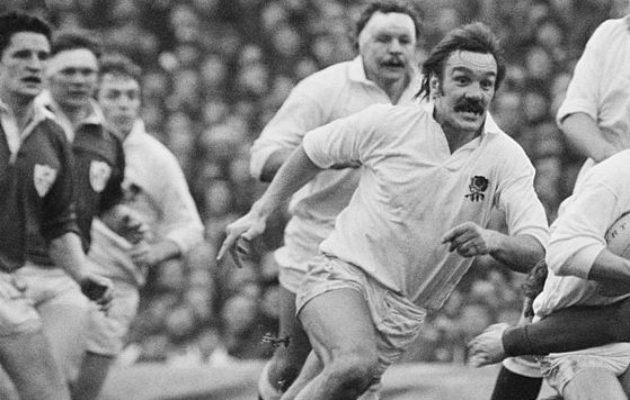Roger Uttley cemented his name as one of the all-time blindside flanker greats, with an impressive string of performances in the England and Lions Test shirts
Major teams: Fylde, Gosforth, Wasps
Country: England
Test span: 1973-80
England caps: 23 (23 starts)
Lions caps: 4 (4 starts)
Test points: 12 (3T)
He was a granite-like forward who made his name on the invincible Lions tour of South Africa in 1974, when he was taken as a lock but played all four Tests as a blindside alongside Fergus Slattery and Mervyn Davies in the back row. He played all but one of the 17 tour matches and scored a crucial try in the final, drawn Test.
The Blackpool-born Uttley had been in England’s second row throughout 1973 and 1974, playing in the wins over New Zealand in Auckland and Australia at Twickenham, two rare highlights in a poor period for English rugby.
A schoolteacher at Harrow, where he was director of physical education, Uttley didn’t tour with the Lions in 1977 but soldiered on with England, captaining them five times. They won their first Grand Slam for 23 years in 1980 when, in the view of coach Mike Davis, Uttley was one of five world-class players in the team, the others being Cotton, Wheeler, Neary and Slemen.
The defeat of Wales saw Uttley incur a terrible injury as Geoff Wheel tried to kick the ball but instead connect with the flanker’s head, splitting his nose. “Tony Neary came over and said, ‘Christ!’. My face felt like a football,” says Uttley.
Regular injuries were part and parcel of Uttley’s career, notably an ongoing back problem that first arose when he trod on some uneven turf during a training session in Scotland. He has a long back due to an extra sacrum vertebrae.
The 30-18 defeat of Scotland at Murrayfield that clinched the Slam signalled the end of his England career, but he was to enjoy some great times as a coach.
He was an assistant to Ian McGeechan as the pair plotted the Lions’ win over the Wallabies in 1989 and coached England to the 1991 World Cup final, alongside Geoff Cooke.
In 1997 Uttley was appointed England team manager under their first full-time head coach, Clive Woodward, but he lost that job two years later following a swathe of cost-cutting measures by the RFU. A tireless charity fund-raiser, he remained at Harrow until 2008 and now lives in the North-East, writing for the Newcastle Chronicle.






